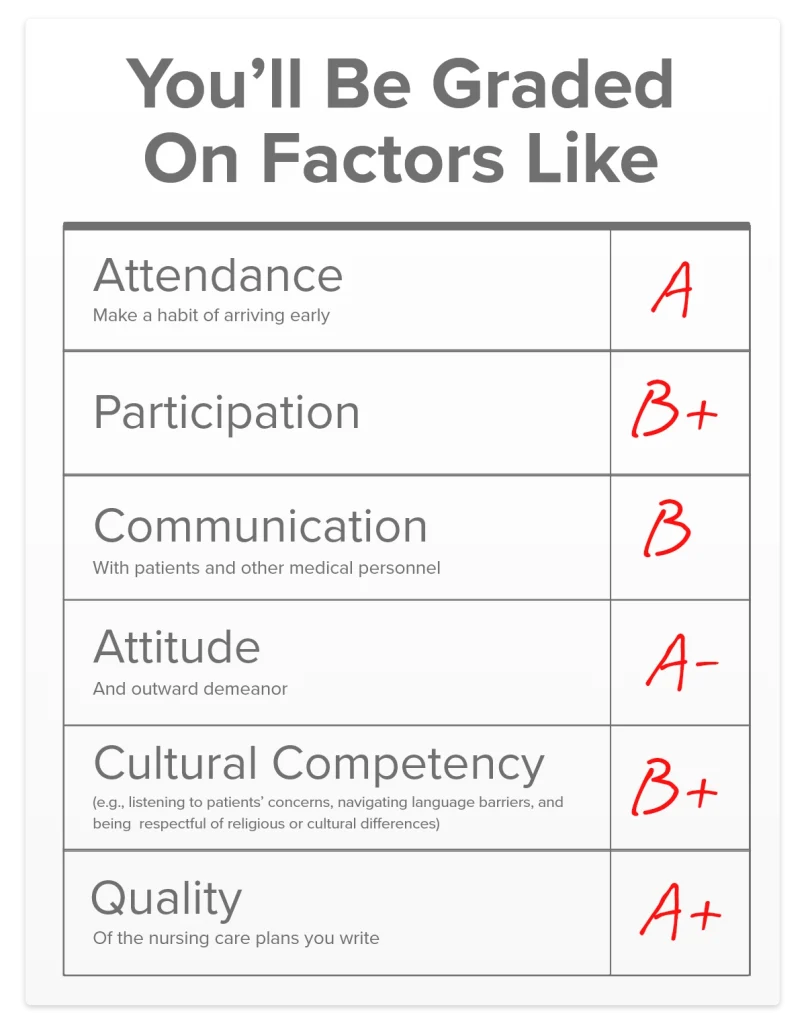Clinicals are a major milestone in your nursing journey. They’re your first chance to care for patients, apply what you’ve learned in class, and start thinking like a nurse.
It’s exciting — but can also feel overwhelming when you’re unsure what to expect. We’ll walk you through what clinicals are like, share practical tips to help you succeed, and show you how to fit in NCLEX prep during this busy time in your nursing school journey.
Understanding Clinicals: What to Expect
During clinicals, you’ll rotate through different healthcare settings — hospitals, clinics, long-term care facilities, and more — getting hands-on experience alongside working nurses. Each rotation helps you build new skills and gives you a clearer idea of the type of nursing career you might want to pursue.
When Do Nursing Students Start Clinicals?
The timing of your first clinical depends on your nursing program. If you're in an accelerated or 2-year program, you might start clinicals in your first semester. In a traditional 4-year program, clinicals typically begin in your junior year, after you've completed foundational coursework.
No matter when your first clinical happens, it's normal to feel a mix of excitement and nerves. The best way to feel prepared is to go in with an open mind and a willingness to learn. Reviewing key clinical concepts ahead of time in our QBank — patient assessments, dosage calculations, and documentation — can help you feel substantially more confident before stepping onto the floor.
How Do Nursing Clinicals Work?
You’ll take on real nursing responsibilities under the supervision of a clinical instructor or registered nurse during clinicals. Depending on your program, you may have 4- to 6-hour shifts a few times a week or full 8- to 12-hour shifts that mimic real nursing schedules.
You’ll start by observing and assisting with basic tasks. As you gain experience, you’ll take on more responsibilities, such as performing patient assessments, administering medications, and documenting care.
Many students find it helpful to review key clinical concepts before each shift to feel ready for whatever comes their way during their rotation. A quick refresher — whether from digital flashcards or class notes on your mobile app — can make all the difference in feeling more prepared and confident when treating real patients.
How Many Clinical Hours Are Required?
Clinical hour requirements vary by state and program, but most nursing students complete around 500 hours before graduation — typically 120 to 140 hours per semester in a 2-year program. It might seem like a lot of hours, but every shift is a chance to build confidence and refine your skills.
Plus, clinicals help prepare you for the NCLEX, where you’ll be tested on real-world scenarios that require strong clinical judgment. Paying attention to how nurses make decisions during your rotations — and practicing similar questions on your own — can help you bridge the gap between real patient care and tested content.
Are Clinicals in Nursing School Paid?
Nursing students don’t get paid during clinicals. While they require a significant time commitment, clinicals are necessary for your education. Think of them as an on-the-job training experience rather than a paid position.
While clinicals might not offer a paycheck, they do allow you to network with potential employers and gain hands-on experience before graduation. The more engaged you are in clinicals, the easier it becomes to apply that knowledge in the real world.
What Happens During Nursing Clinicals?
Your clinical experience will depend on your rotation and setting. Whether in a hospital, clinic, long-term care facility, or community health center, you’ll take on real nursing tasks under supervision.
Here’s what you can expect:
- Long-term care facilities
- Emergency and trauma care
- Labor and delivery units
- Pediatric care
- Community and public health settings
- Psychiatric care
- Surgical care
- Medical-surgical units
- Acute care
- Geriatrics
- Taking vital signs
- Recording medical histories
- Assisting with mobility
- Administering medications
- Monitoring fluid balance
- Setting up IV lines
- Performing wound care
- Helping with daily activities
- Collecting lab samples
- Communicating with healthcare teams
- Critical thinking
- Clinical decision-making
- Compassionate care
- Patient communication
- Recognizing deterioration
- Time management
- Adapting under pressure
- Teamwork in healthcare
- Professionalism and ethics
- Clinical judgment
What Is a Nursing Care Plan?
A nursing care plan is a roadmap for patient care, ensuring that all healthcare providers are aligned on a patient’s needs, treatments, and progress. It outlines a patient’s medical condition, nursing diagnoses, goals, and the specific interventions required to provide effective care.
During clinicals, you’ll create and document care plans to help develop your critical thinking and clinical judgment skills. These plans teach you how to assess a patient’s condition, prioritize interventions, and evaluate outcomes.
How to Navigate Clinicals
Success in clinicals starts before you ever step onto a hospital floor. Preparing mentally, physically, and intellectually will help you confidently navigate this critical stage of your nursing education. Whether building the right mindset, organizing your gear, or balancing school and NCLEX studying, a little preparation makes clinicals more manageable and rewarding.
Prepare Mentally: Build a Strong Mindset
Your mental health and mindset during clinicals influence your experience. Some days will be empowering, while others may leave you feeling drained. How you approach each shift will make a difference.
Instead of aiming for perfection, adopt a growth mindset. Clinicals are designed to challenge you and are a safe space to ask questions, take feedback, and develop confidence. When mistakes happen (and they will), shift your mindset and see them as learning opportunities rather than setbacks.

- Stay open. Every challenge is a chance to grow, even when uncomfortable.
- Ask questions and seek clarification. No one expects you to know everything.
- Take feedback as a learning tool, not a personal critique.
- Think critically. Clinical confidence develops with practice.
- Reflect on each shift, but don’t dwell.
- Provide respectful, patient-centered care, but also be kind to yourself.
- Listen actively to patients and your own emotional well-being.
- Follow HIPAA. Confidentiality applies to patients and personal stressors.
- Stay adaptable and flexible with changing schedules, patient needs, and new challenges.
- Recognize emotional fatigue and take breaks when needed.
- Confidence and resilience take time. Be patient with yourself. No one is an expert on day 1.
- Take initiative, but set boundaries to avoid burnout.
- Show up prepared, but allow yourself grace on tough days.
- Trust the process. Every challenge builds your skills and mindset.
- Don’t be afraid to ask for support and reach out to mentors when you need guidance
Prepare Physically: What to Wear and Bring
Long shifts, constant movement, and busy hospital environments mean physical preparation is just as important as mental preparation. Bringing the right gear for your specific clinical specialty will make your rotations much more comfortable and efficient.
Each clinical rotation may have different demands. A hospital-based rotation might require extra hand sanitizer and note-taking materials, while a community health setting may call for additional reference guides and patient education materials. Ensuring you have what you need will make each shift run smoothly.

- Wear comfortable, school-approved scrubs that meet your program’s dress code.
- Invest in supportive shoes and compression socks. Long shifts take a toll on your feet.
- Stay hydrated and energized with a refillable water bottle and snacks.
- Keep your student ID and facility badge handy at all times.
- Use a well-organized backpack or clinical bag to carry essentials.
- Bring a stethoscope and a penlight. You’ll use them every day.
- Keep notepads and spare pens for jotting down patient details.
- Use nursing report sheets and a drug guide for quick reference.
- Store clinical paperwork in a binder or folder to stay organized.
- Carry alcohol wipes and hand sanitizer for quick hygiene between tasks.
- Arrive well-rested and on time because punctuality matters.
- Keep hair neatly pulled back and maintain a professional appearance.
- Follow hospital and school policies on dress code and hygiene.
- Minimize distractions. Leave valuables at home or in a secure place.
- Approach every shift with energy, preparation, and a willingness to learn.
Prepare Intellectually: Balance Clinicals, Classes, and the NCLEX
Juggling clinicals, coursework, and NCLEX prep can feel overwhelming during this busy season, but the right strategies make all the difference. Instead of cramming, use focused micro-study sessions to reinforce what you learn in clinicals and make your NCLEX study plan more manageable over time.
Finding study tools that fit into a busy schedule — such as quick practice questions or a mobile app — makes it easier to fit in bite-sized sessions during your (albeit rare) free moments. Small, consistent efforts add up over time, helping you retain more information without last-minute stress.

- Plan ahead with a study planner tailored to the NCLEX. Schedule clinicals, coursework, and NCLEX prep to avoid last-minute stress.
- Use flashcards to review NCLEX concepts related to cases you saw during clinicals.
- Adjust your workload based on deadlines and clinical demands to prioritize wisely.
- Unexpected clinical changes happen, so allow for adjustments and stay flexible.
- Give yourself grace. Balance takes time, and progress matters more than perfection.
- Pay attention to how nurses make decisions. This skill is tested on the Next Generation NCLEX.
- Reinforce clinical concepts with high-yield videos that break down real-world applications.
- Use detailed answer rationales and case-based scenarios to improve critical thinking.
- Connect classroom knowledge with patient care to make retention easier.
- After each shift, identify an NCLEX-style case study similar to a patient you worked with to reinforce clinical judgment.
- Practice anywhere with our mobile app — on breaks, commutes, or between shifts.
- Use short 5- to 10-minute study sessions to reinforce key concepts daily.
- Take NCLEX Computerized Adaptive Tests (CAT) to track progress and adjust focus areas.
- Pair practice questions with note-taking for long-term retention.
- Stay consistent. Regular practice with NCLEX-style questions, even in small sessions, helps reinforce clinical knowledge and leads to success on exam day.
Learning from Mistakes During Clinicals
Mistakes are inevitable in clinicals — and that’s OK. The goal isn’t to be perfect but to learn, grow, and develop safe nursing habits. When errors happen, consider them opportunities to improve rather than reasons to doubt yourself. Here are some common mistakes nursing students make and how to avoid them:
- Rushing medication administration: Always double-check dosages and follow safety protocols.
- Avoiding your instructor: Ask questions and seek guidance instead of trying to figure things out alone.
- Skipping rest: Fatigue affects focus, decision-making, and learning retention. Prioritize sleep when possible.
- Documenting Inaccurately: Nursing notes and patient charts must be clear and complete — take your time.
- Overlooking fall risks: Always assess a patient’s mobility before assisting them.
- Ignoring infection control: Hand hygiene and proper personal protective equipment use are essential for patient safety.
- Failing to report mistakes: Owning up to errors is part of being a responsible, ethical nurse.
No nursing student gets through clinicals without making a few missteps. The key is to learn from each experience, stay engaged, and use every shift as an opportunity to improve. Approach clinicals with a willingness to learn and adapt, and you’ll succeed during your training and throughout your career.








